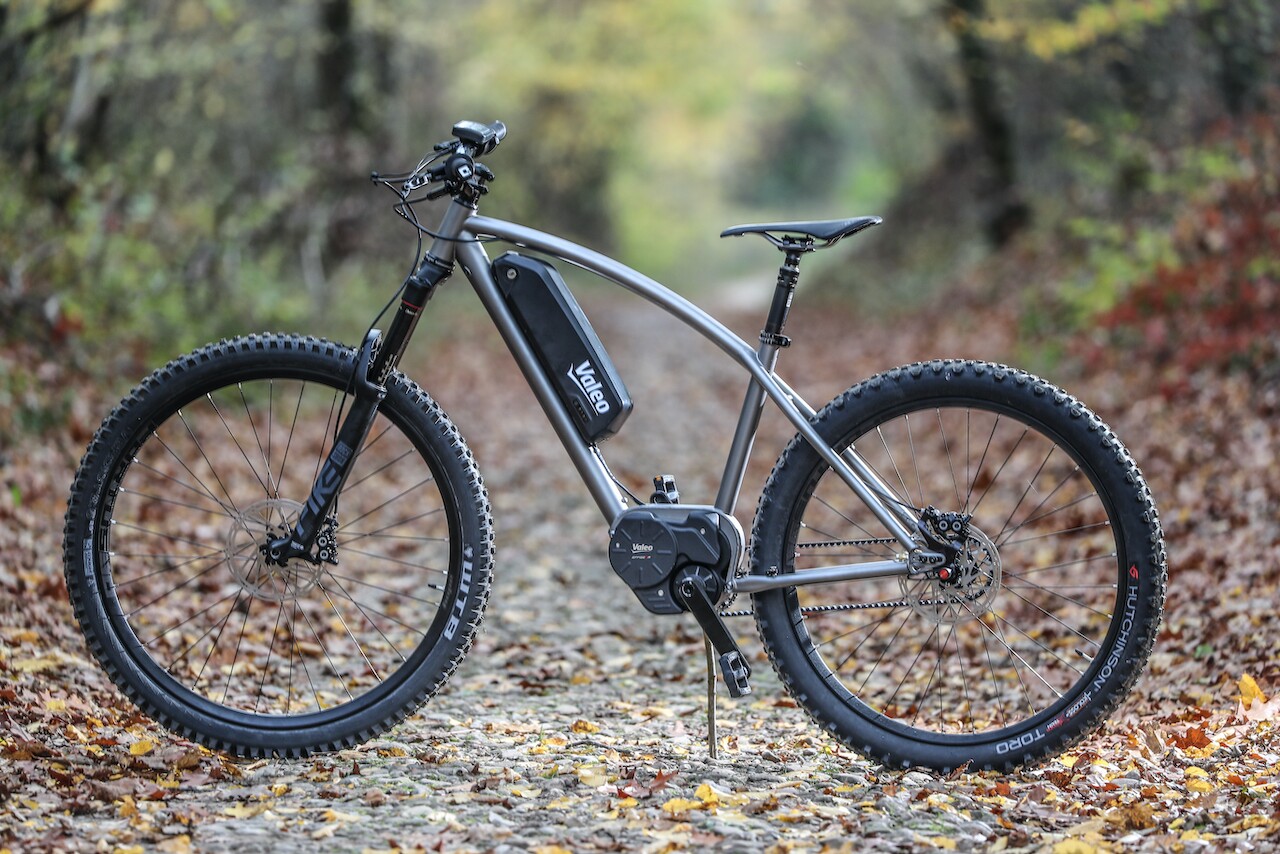French company Valeo is a vast and formidable entity doing some 20 billion euros’ worth of business as a global automotive parts supplier, so when it announced in 2020 that it was planning to revolutionize the ebike world, people sat up and listened.
Most of the ebike market as it stands consists of hundreds of bicycle brands designing around a few popular motor units made by companies like Bosch, Shimano, B-Rose, Bafang and the like. When mounted as mid-drive units, these motors quite literally put inhuman amounts of torque through chain-and-derailleur gear systems that struggle to cope with it. This strain is multiplied when riders get lazy and leave the bikes in high gear because they’re so easy to pedal with electric assistance.
Pencil-thin chains and derailleurs already seem like anachronisms in the ebike world. There’s a lot of sense in the idea of an automatic transmission that’s built right into the motor housing and designed specifically to handle the forces involved.
There are other automatic transmissions and derailleur-free shift systems on the market. Enviolo’s Harmony units use an automated version of NuVinci’s continuously variable transmission technology, for example, and Bosch’s eShift system will happily talk to neatly sealed hub transmissions from Enviolo, Rohloff and Shimano.

Valeo
But Valeo’s system puts the whole thing into a single unit. It’s a seven-speed adaptive gearbox, developed in partnership with Effigear, that can shift gears in less than a tenth of a second, powering the rear wheel through a clean, quiet carbon belt drive. The gearbox is integrated into the same housing as a 48-volt electric motor that can put out as much as 130 Nm (96 lb-ft) of torque. That’s a pretty healthy output; for comparison, Bosch’s Performance Line CX feels very strong and peaks at 85 Nm (63 lb-ft). The final power output will probably mostly end up being 250 W, with a max assist speed of 25 km/h (15.5 mph) to meet European regulations, but the motor’s likely capable of a kilowatt or more if it was uncorked.
Other optional features that manufacturers can choose to have built in include regenerative braking, a boost function, reverse gear and an anti-theft pedal lock. Valeo’s also making its own dash and control units, or presumably allowing manufacturers to build their own. It’s a slightly chunky looking unit, but worth it in our estimation since it cleans up the lower half of the bike immensely, and it ought to be built to last.
Valeo isn’t manufacturing its own bikes, but it’s announced that 14 manufacturers have signed up to come on board, and series production of the powertrains will begin in May this year. It expects 100,000 bikes to be delivered in 2024. Customers at this stage include La Manufacture Française du Cycle (through its Sunn brand), Ateliers HeritageBike, VUF Bikes, Cycleurope and FUELL.
The key here from a consumer’s point of view will be price. Bikes running the Enviolo system, for example, don’t tend to appear below about the US$4,000 mark. That’s certainly not at the premium end – you can pay very silly money for ebikes these days – but perhaps by integrating everything in together, simplifying the drivetrain and manufacturing in bulk, Valeo might be able to bring a solid solution in at a better price. We shall soon see.
Source: Valeo
Source of Article